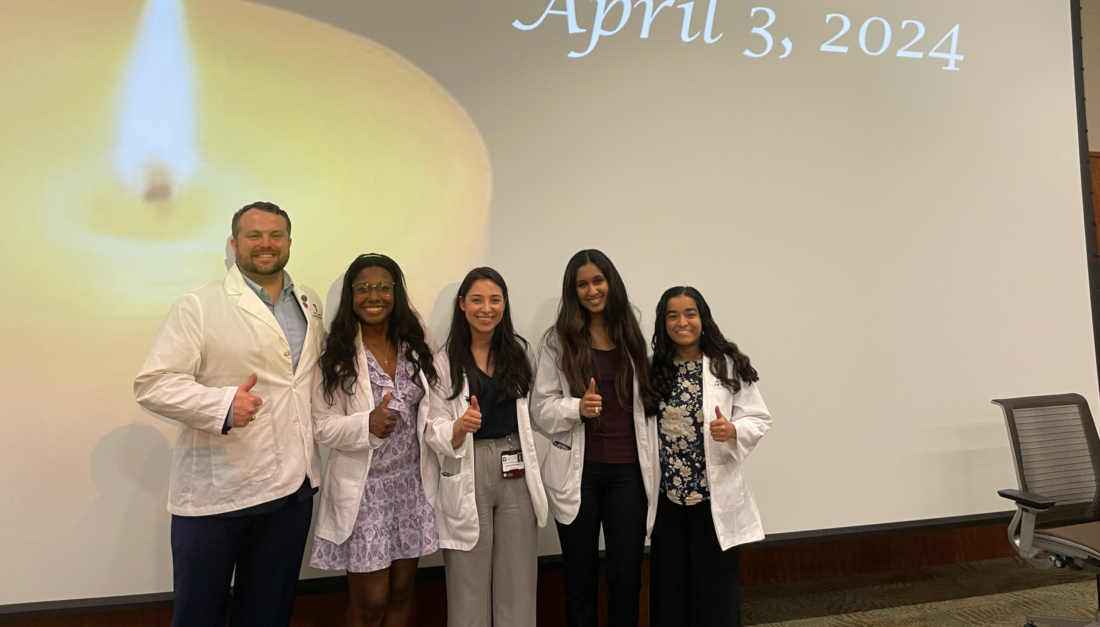M2 Students Teach Modern Medicine to Gifted Students

“Let’s do this!” exclaimed Reid Osterloth, a 10th-grader from Florida, right before checking the blood pressure of his friend.
This is Osterloth’s fourth year in the Duke Talent Identification Program (TIP), which identifies gifted children and provides resources to connect and educate them in various fields such as medicine and engineering. After a brief lecture and hands-on activity on the lungs, he said, “It finally makes sense! My lungs are here (pointing to his chest), but doctors always listened to my back. It makes sense!”
While Osterloth made these discoveries, his instructors, Chelsea Velasquez and Faryal Masud, were busy assisting the other “TiPsters” as they inspected ears and eyes, checked reflexes, and whispered “99” eight times.
Although the program has held a medicine class at Texas A&M before, this was the first time the class was taught by students of the TAMHSC-College of Medicine. Before this year, the program solicited people from medical schools in other cities.

Velasquez and Masud start their second year of medical school this fall at the Texas A&M Health Science Center TAMHSC-College of Medicine and found teaching this class reinforced what they previously learned. “It’s a good refresher for something we already know,” Velasquez said.
Since funding for preceptorships has declined, working as a TIP instructor served as a convenient alternative to research when it came to paid opportunities for students to apply their medical knowledge. Throughout her undergrad tenure, Masud conducted research during the summers, but this summer she wanted to do something different.
“When you do research, you get to do good projects and learn something new, but this is a good review of our first year,” Masud said

Unlike what they’re used to in regular classes, the inquisitive TiPsters asked Velasquez and Masud several questions and regularly ended up in discussions on off-tangent topics, such as starting on parasites and ending up on fetal alcohol syndrome. Both students acknowledged they couldn’t answer every question, but that didn’t seem to faze the TiPsters; if anything, everyone was excited about the prospect of discovery, discussion and debate.
After a month away from their own shower and bed, the TiPsters were exhausted but sad it was over. They spoke fondly of their instructors, stating they learned more from this program on disease and immunology than from other programs.
Media contact: media@tamu.edu


